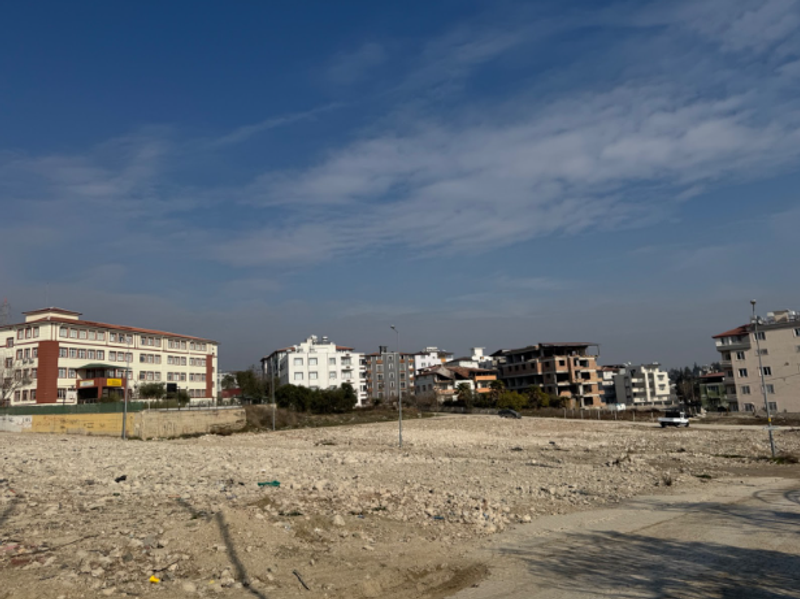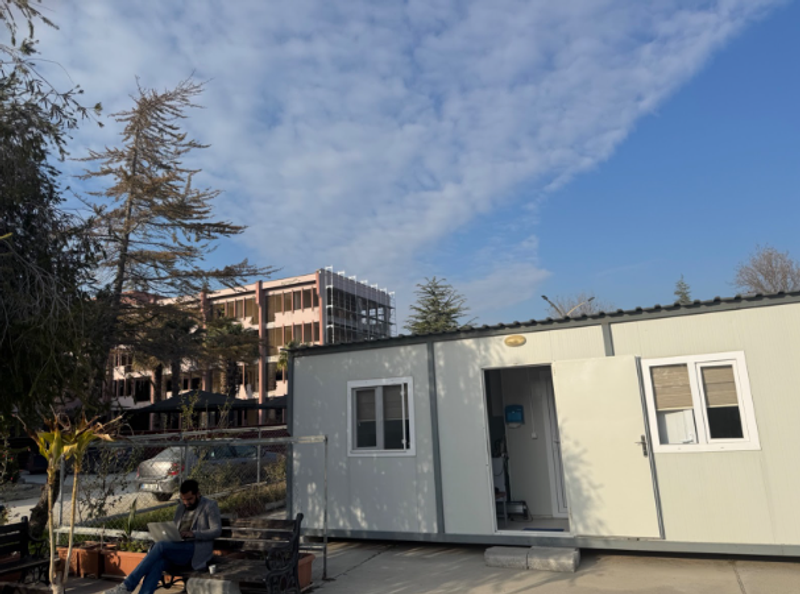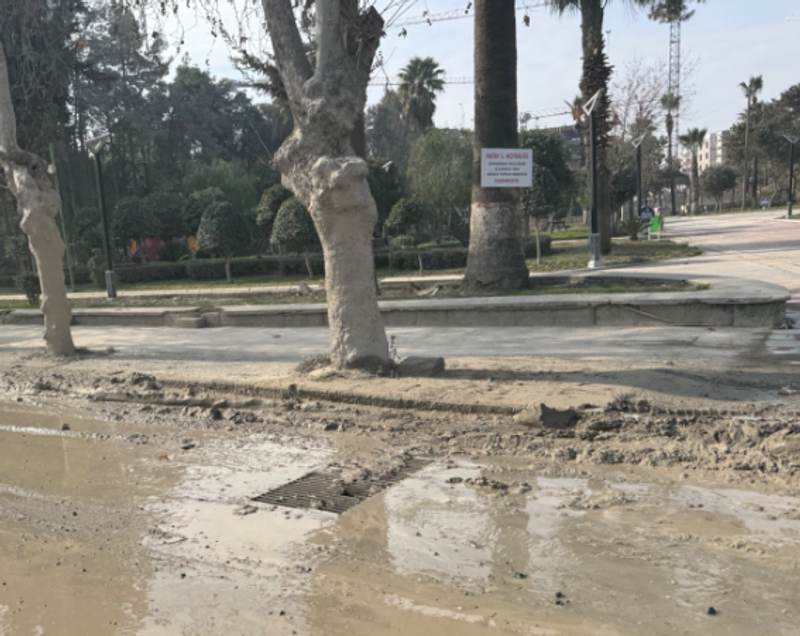From rubble to resilience: How Turkey recovers after the 2023 earthquake

Can a disaster zone become a model for resilient urban development? Columbia Global thinks so.
In Antakya, Turkey, the drive to rebuild after the devastating 2023 earthquakes that killed thousands and left millions homeless has transformed the region into a massive construction zone. But as local officials prioritize rapid reconstruction, Columbia researchers are asking critical questions: Who decides how these cities are rebuilt? And how can recovery address not just what was destroyed, but the underlying vulnerabilities that made the disaster so catastrophic?

The 'Building Back Better in Hatay' project, one of three initiatives awarded funding in the inaugural year of the Columbia Global Resilience Fund, brings together an interdisciplinary team to tackle these challenges. Led by experts from Columbia's Climate School and Graduate School of Architecture, Planning and Preservation, the team is leveraging the university’s expertise across climate science, urban planning, and disaster management to develop a multi-stakeholder, multi-risk approach to urban development. Their Resilience Fund-supported project brings together Columbia researchers with Turkish scientists, policymakers, and community organizations.
"While the urgency of reconstruction is evident, there are serious concerns about who gets to decide how these cities are rebuilt," says Elif Sakalli, a Columbia student and the project assistant for the Resilience Fund supported project, who recently completed field research in the region. Sakalli, who is working under the leadership of Columbia researchers Jacqueline Klopp, Ebru Gencer, and Andrew Kruczkiewicz, brings valuable on-the-ground insights as a native of the region. "The centralization of decision-making has led to the exclusion of local expertise and residents from planning efforts."

In January 2025, Sakalli traveled to the region with the backing of the Columbia Global Center in Istanbul, which provided both funding and strategic support. This field visit revealed a complex landscape of challenges that extends beyond the immediate earthquake recovery. Two years after the disaster, Sakalli found many residents and Mustafa Kemal University faculty still working from makeshift container structures that were meant to be temporary.
"Container housing was originally meant to be a short-term solution, yet it has become a long-term reality," Professor Bilge Cakir of Mustafa Kemal University told Sakalli during the visit. Many locals continue to run businesses from these inadequate structures while waiting for permanent housing.
A consistent theme throughout Sakalli's conversations was the lack of access to reliable data, with no centralized hub for researchers, practitioners, and policymakers to reference. The Hatay Planning Center, initially established to address this need, became inactive following political changes — highlighting a gap the Columbia project hopes to address.
During interviews with the Mayor of Antakya, faculty members from Mustafa Kemal University, and local NGO representatives, Sakalli uncovered critical challenges that have emerged from the hasty reconstruction: flooding, dust, waste management issues, poor air quality — already leading to respiratory illnesses — and extreme traffic congestion.

"The push for speed in reconstruction is undeniable, but the question remains: at what cost?" Sakalli reflects.
The Columbia team's approach particularly emphasizes the inclusion of vulnerable populations, such as refugees, women, and children, in rebuilding efforts. They're also paying special attention to preserving Hatay's rich multicultural heritage, which includes significant architectural and historical sites.
"This field visit was invaluable in refining our approach," says Sakalli. "Seeing the evolving landscape of my hometown firsthand reinforced the importance of our work."
The Columbia researchers leading the 'Building Back Better in Hatay' project:
Jacqueline Klopp, director of the Center for Sustainable Urban Development at the Climate School
Ebru Gencer, adjunct associate professor at the Graduate School of Architecture, Planning and Preservation
Andrew Kruczkiewicz, senior staff associate for the International Research Institute for Climate and Society at the Columbia Climate School
Still curious? Continue reading.
News: Following the Snake, What I learned about leadership from Mapuche women
News: Where Research Leads to Results, A Year of Thinking + Doing